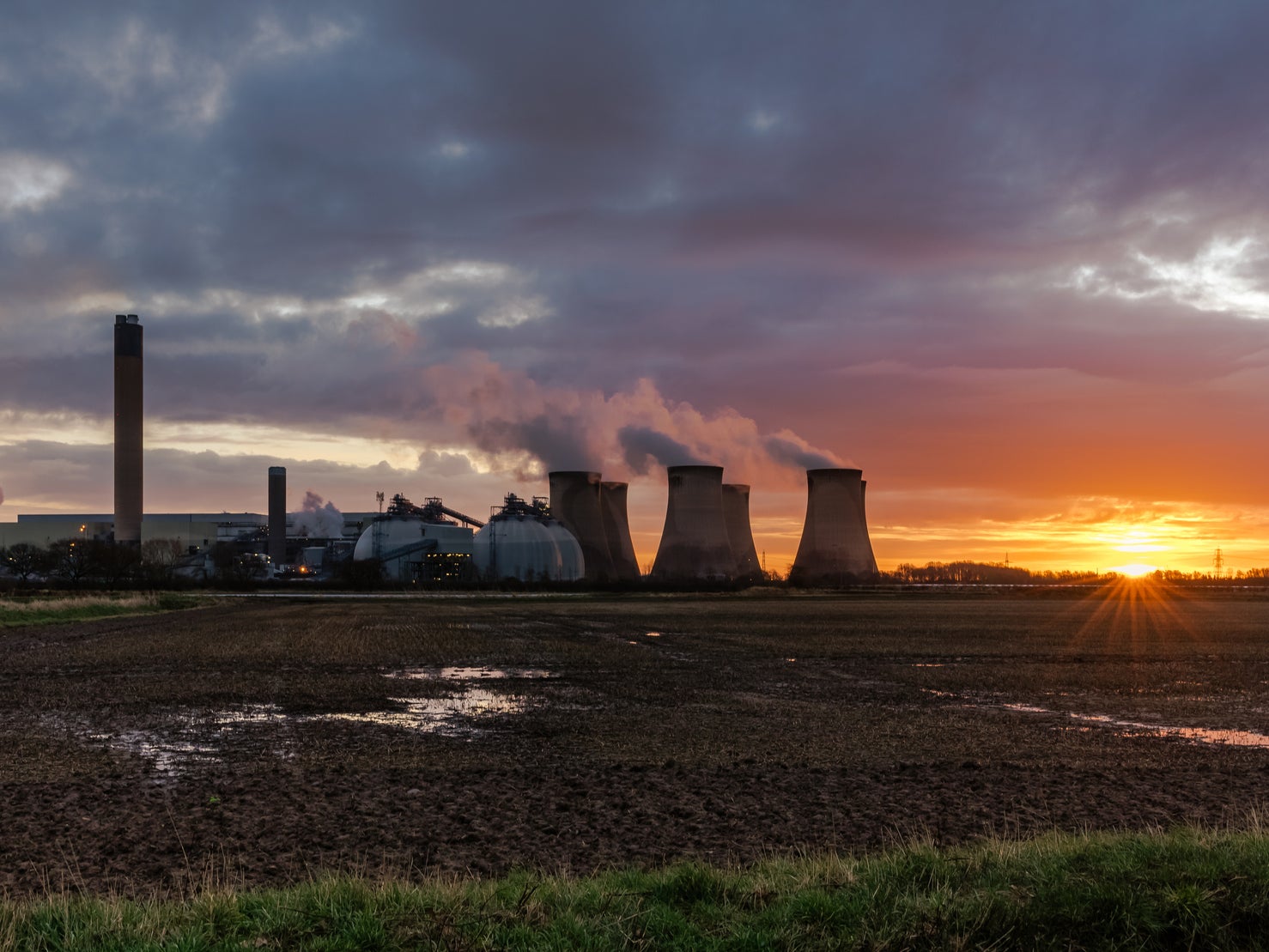Climate crisis: UK's record coal-free power run comes to an end
But the fossil fuel's days are numbered

The UK’s record coal-free run has come to an end after more than two-months, making it the longest period since the industrial revolution the country has not used electricity produced using the fossil fuel.
The total coal-free period lasted 67 days, 22 hours and 55 minutes, and ended on Tuesday night when the Drax power station in north Yorkshire brought one of its coal units online for maintenance, during which time it added some power to the national grid.
The record far outstrips the previous longest stretch without coal-fired power, of 18 days, 6 hours and 10 minutes, which ended in June last year.
The coal-free period began this year amid the coronavirus lockdowns, which saw demand for power plummet by up to 20 per cent compared to the same period last year, as schools, manufacturing plants and businesses closed, and significant numbers of people worked from home.
Over the period of the coal-free run, renewable energy sources made up the biggest share of the mix, generating nearly 36 per cent of power, while gas provided around 33 per cent, and nuclear 21 per cent.
The polluting fossil fuel has played an increasingly small role in Britain's power mix in recent years, with a government target to phase it out altogether by 2024, and saw its share of generation fall to just 2 per cent last year.
The National Grid Electricity System Operator (ESO) said it is planning to be able to operate the grid for periods without any fossil fuels, including gas, by 2025.
Coal usage typically drops off in warmer months, and since last summer, the largest contribution coal has made to the UK’s energy was at the end of January, when it made up 6.9 per cent of the power mix.
As recently as 2015, on many days of the year, coal contributed more than 50 per cent of the power used by the grid, and it still made up 25 per cent of the total power mix in 2016, according to records kept by Drax Electric Insights.
The first coal-free day was recorded in 2017, and until this month’s record, the previous longest period without coal was in May 2019 when coal power contributed nothing to the grid for two weeks.
Overall, coal contributed just 2.1 per cent of the country’s total power mix in 2019.
The coal-free run ended after Drax in North Yorkshire carried out tests on one of its units which required it to generate power.
Drax said essential maintenance had been carried out on one of its coal generating units “as is usual during the spring and summer months when demand is lower, and the coal units are not required to run”.
In a statement, the company said: “Following the completion of this work, we need to make sure the unit is performing well, ready for the winter when demand for power increases and the coal units are expected to run.
“As a result, tests are being carried out now which require the unit to generate power.”
Drax will stop generating power using coal in March 2021, though its two coal units will remain available until September 2022.
The world’s first coal-fired power station, the Edison Electric Light Station, opened in London in 1882 and coal remained a constant source of power until 2017 – a period of 135 years.
The opening of the Edison Electric Light Station at Holborn viaduct came two years after the world’s first hydroelectric power generation scheme, which was developed in 1878 at Cragside in Northumberland, by William Armstrong.
It was not strictly a commercial venture, primarily being used to light his own house, but Armstrong was an early advocate for renewable energy and even hypothesised about future solar power generation.
He believed coal “was used wastefully and extravagantly in all its applications”, and as early as 1863 he predicted Britain would cease to use coal within two centuries.
After the closure of two plants in March 2020, just three coal-fired power plants remain in Great Britain: Drax, Ratcliffe and West Burton, and also one, Kilroot, in Northern Ireland – though this doesn’t contribute energy to the national grid.
Additional reporting by PA
Join our commenting forum
Join thought-provoking conversations, follow other Independent readers and see their replies
Comments
Bookmark popover
Removed from bookmarks